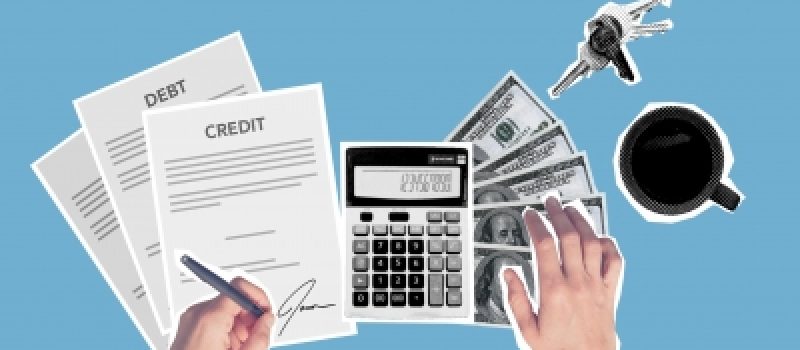Over-indebtedness is defined as the inability to repay all debts in full and on time. This occurs when a household's net income is insufficient to cover its recurring expenses over a period of six consecutive months. This is an adverse and continuing financial situation that could result in legal action.
What are the causes of over-indebtedness?
Over-indebtedness never happens by chance. We can distinguish two main causes leading to this situation:
- personal reasons (poor budgetary management, pursuit of higher social status, illness, accident or injury, dependency, etc.)
- social reasons (inflation, unemployment, drop in wages, late payments, etc.)
We can therefore say that there are two types of over-indebtedness: “passive” over-indebtedness, caused by unemployment and other sudden events which make it impossible to repay a debt; and “active” over-indebtedness, the result of debt beyond one’s ability to pay.
Debts can be qualified as:
- common expenses, such as rent, electricity and internet bills as well as all home renovation costs.
- debts in the form of real estate credit, consumer credit or car credit. This involves borrowing money which will be repaid monthly with interest.
Simply having to repay a loan or experiencing temporary financial difficulties does not mean that you are over-indebted. This happens to a lot of people. So, don't panic! Loans are not the enemy, although it is important to recognize that over-indebtedness can be caused by their abuse.
Before taking out a loan for any reason, make sure you have a clear idea of what your available budget will look like afterward. Ask yourself a simple question: “Is my income enough to cover both my living expenses and my loan payments?” ". Will you have enough money for necessary expenses like rent, groceries and household bills? If the answer is no, you risk over-leveraging yourself and should definitely think twice before signing.
To know if you are at risk of over-indebtedness, you must first know your debt ratio, that is, your monthly income compared to your total monthly expenses. You calculate this ratio by adding up your debts for a given month (rent, bills and loans) and comparing them to your net monthly income. Generally, a debt ratio higher than 50% of your disposable income carries a risk of over-indebtedness. Even a debt ratio higher than 30% is worrying and calls for caution! Also the 33% rate is systematically taken into consideration by banks before granting credit.
Here are some useful tips to help you control your personal finances and avoid over-indebtedness:
- Save as much money as possible. Set aside money regularly. You will be able to cope much more easily with incidental and unforeseen expenses.
- Limit unnecessary spending. Reduce your current standard of living and only buy what you need. Take advantage of special offers on your essential purchases. Review your expenses and choose what you can't live without, even temporarily, until your finances are in order.
- Avoid any late payments. Late payments are costly and will increase your debt.
- Make a payment schedule. Create a schedule based on your income and your payment due dates. This way you will know what you can pay each month and you can adjust your spending.
- Do not use revolving credits. They have a very high interest rate and it is tempting to use the credit limit. Avoid credit cards and loans to cover expenses.
- Contact your creditors. Negotiate additional time to repay or reschedule your loans.
- Do not take out new loans. Doing so will only make things worse.
- Do not consolidate your loans. You increase your overall debt by extending the term of the loan.
In order to control your budget and maintain your payment and repayment capacity, it is essential to keep an eye on your finances. By taking certain precautions, being aware of the risks and rigorously managing your budget, you have every chance of never facing over-indebtedness!
It may also be helpful to take out insurance for your largest credits. This offers you additional protection against unforeseen events that could unbalance your repayment capabilities.
You have probably already heard about the danger of personal loans, granted without any conditions by many organizations. These loans are used in many situations of over-indebtedness. Very easy to obtain, they are generally granted online very quickly. Avoid the consumer credit trap.
Debt can have devastating consequences on your well-being: loss of self-confidence, depression, isolation, family conflict, reduction in the family budget. If you are in over-indebtedness, don't bury your head in the sand, take matters into your own hands! Action always leads to a solution! Start by contacting your creditors to ask them for an arrangement to repay the amounts you owe them. For example, renegotiating a home loan often allows you to reduce your monthly expenses. Or request a payment plan to ease your financial situation.




